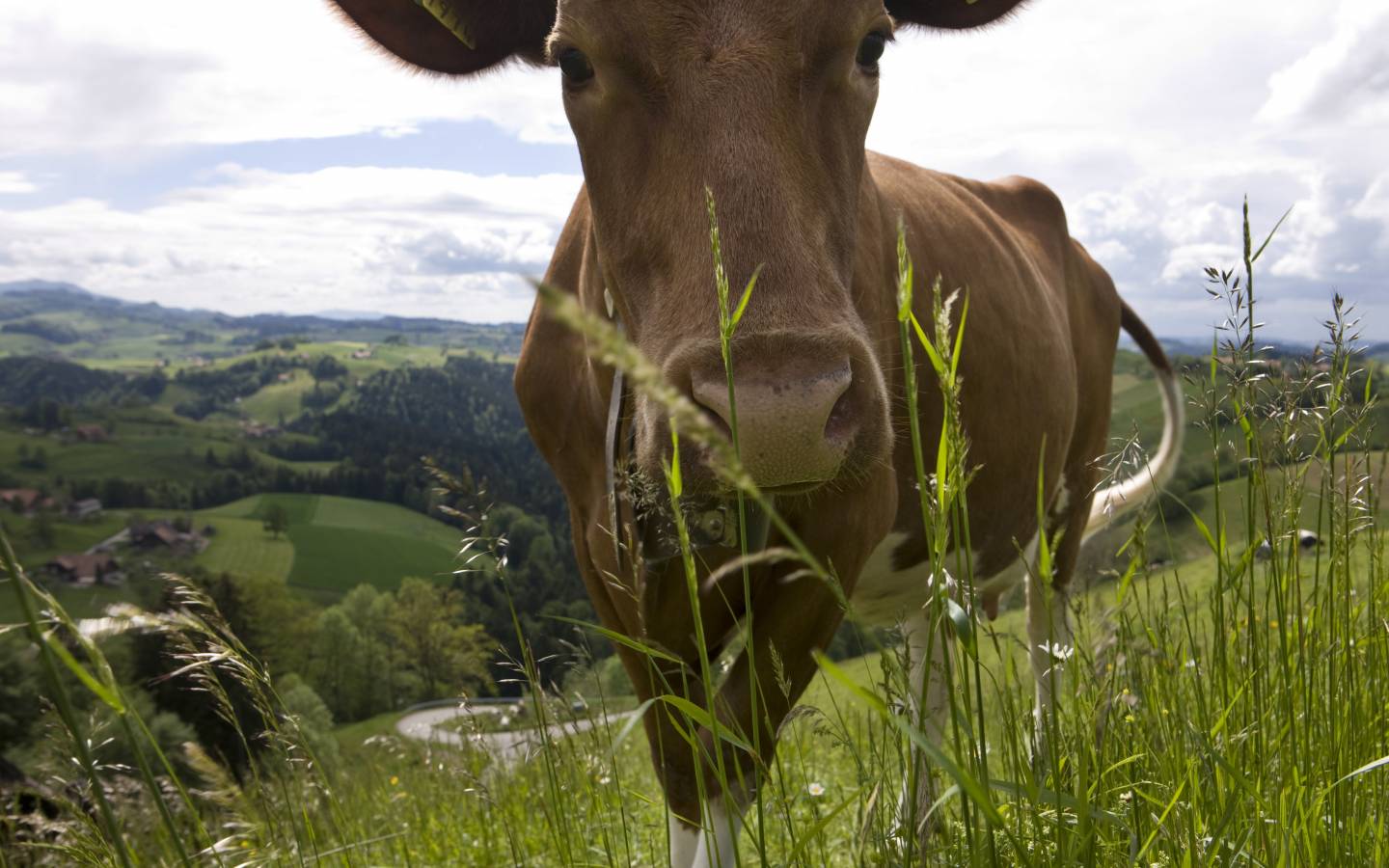Partnership with Emmi 2022
Emmi has set the goal of reducing the environmental impact of milk processing. The focus of the collaboration with WWF is on reducing CO2e emissions, decreasing food waste in production, and working towards more sustainable milk.


CLIMATE AND ENERGY
Reduction of greenhouse gas emissions (Scopes 1&2)
In reducing its absolute greenhouse gas emissions, Emmi is guided by the 1.5° path for Scope 1 and Scope 2. These emissions are to be reduced by 28% by 2024 compared to 2019. Measured are the tonnes of CO2. The scope comprises Scope 1&2 in accordance with the GHG Protocol for all business areas of Emmi global business units.
By the end of 2022, Emmi's greenhouse gas emissions in Scope 1 and Scope 2 have sunken by 5.6% compared to 2019 (absolute actual value 2022: 101,160 tons CO2e).
Remarks: This target is a linear derivation of Emmi's science-based climate targets validated by the Science Based Targets initiative (SBTi). A linear target achievement path is not to be expected because substantial reductions in emissions occur selectively through individual larger measures or successful projects. The linear reduction path is understood as a guideline.
Reduction of greenhouse gas emissions (Scope 3 with regard to purchased raw milk)
In Scope 3, a reduction in greenhouse gas emissions of 16% per kg of purchased raw milk is to be achieved by 2024 compared to 2019.
The factors are calculated from the total Scope 3 emissions (according to the GHG Protocol) divided by the volumes of cow's, goat's and sheep's milk and cream processed globally by Emmi.
By the end of 2022, Emmi's Scope 3 greenhouse gas emissions per kg of purchased raw milk have increased by 2% compared to 2019 (absolute actual value 2021: 2.59 kg CO2e per kg purchased raw milk FPCM).
Remarks: This target is a linear derivation of Emmi's science-based climate targets validated by the Science Based Targets initiative (SBTi). A linear target achievement path is not to be expected because substantial reductions in emissions occur selectively through individual larger measures or successful projects. The linear reduction path is understood as a guideline.
Reduction of greenhouse gas emissions (Scope 3 with regard to products produced)
In Scope 3, a reduction in greenhouse gas emissions of 16% per kg of product finished is to be achieved by 2024 compared to 2019.
The factors are calculated from the total Scope 3 emissions (according to the GHG Protocol) divided by the products processed globally by Emmi (by weight).
Emmi's greenhouse gas emissions per kg of finished product were virtually unchanged by the end of 2022 compared with 2019 (absolute actual value 2022: 3.99 kg CO2e per kg of finished product).

Food Waste
Reduction in Food Waste (Switzerland)
Emmi has set the goal of reducing its food waste by 15% by 2024 compared to 2020. The share of food waste is measured in a percentage. The scope comprises all of Emmi's own production operations in Switzerland.
In 2022, the share of food waste amounted to 92% in comparison to 2020. Emmi therefore failed to meet the target value in Switzerland.
Reduction of food waste (global)
In markets outside Switzerland, Emmi has set the following goals around food waste:
- Emmi will implement three global food waste reduction projects by 2024 and will have them audited.
- Emmi will implement the Food Loss and Waste Standard (or equivalent) in three production companies in Italy and the Netherlands by 2024.

Other raw materials
Sustainable milk (Switzerland / international)
Emmi aims to further increase the sustainability of the milk it procures by 2024. To this end, the following procedure was defined together with WWF:
- Emmi has developed a criteria and assessment system for product standards, which has been approved by WWF. The sustainability of milk procurement is measured by the sustainability rating of the production standards or methods weighted by the purchasing volume. A target value for 2024 was set in 2022. Based on the assessment of sustainable milk procurement, the baseline, target, and annual changes will be reported in WWF's corporate cooperation reporting from 2023 onwards.
- An improvement in sustainability will be achieved by improving standards or by shifts within the purchasing portfolio.

